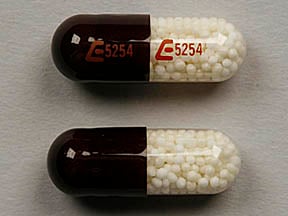
Phendimetrazine ER Coupons & Savings Card – Discount Prices from $76.94
Phendimetrazine is a prescription medication intended to assist with weight loss for individuals with obesity or weight-related health issues, such as high blood pressure, diabetes, or high cholesterol. This drug is most effective when used as part of a comprehensive weight loss plan that includes a doctor-approved diet, exercise, and behavioral changes. Phendimetrazine is an appetite suppressant and belongs to a class of drugs known as sympathomimetic amines. Although the exact mechanism is not entirely understood, it is believed to help reduce appetite by acting on areas of the brain that control hunger. It's administered either as an immediate-release tablet taken two to three times daily or as an extended-release capsule once daily. Common side effects may include restlessness, headache, and elevated blood pressure. Always consult with your healthcare provider for advice tailored to your health and treatment needs before starting any new medication.
Our coupons are free to use. Before paying, show the pharmacist your Phendimetrazine ER savings card to get your free discount. Use our filters below to edit the prescription box to match your needs. The Phendimetrazine ER prices will update based on your prescription needs. Above our Phendimetrazine ER coupons, you can change your location to see pharmacy prices and costs in other areas. We're here to help you buy Phendimetrazine ER at the lowest price with our prescription discount card.
My prescription
Edit
105MG, Phendimetrazine ER (30 Capsule Extended Release 24 Hours)
Select pharmacy

CVS
$120.78
COUPON PRICE
Walmart
$76.94
COUPON PRICE
Walgreens
$94.20
COUPON PRICE
Albertsons
$109.19
COUPON PRICEPhendimetrazine ER savings card
Show this card to your pharmacist
Walmart
$76.94
BIN
ID
PCN
GRP
019876
LH7AF080F4
CHIPPO
LHX
Powered by
Phendimetrazine is a prescription medication intended to assist with weight loss for individuals with obesity or weight-related health issues, such as high blood pressure, diabetes, or high cholesterol. This drug is most effective when used as part of a comprehensive weight loss plan that includes a doctor-approved diet, exercise, and behavioral changes. Phendimetrazine is an appetite suppressant and belongs to a class of drugs known as sympathomimetic amines. Although the exact mechanism is not entirely understood, it is believed to help reduce appetite by acting on areas of the brain that control hunger. It's administered either as an immediate-release tablet taken two to three times daily or as an extended-release capsule once daily. Common side effects may include restlessness, headache, and elevated blood pressure. Always consult with your healthcare provider for advice tailored to your health and treatment needs before starting any new medication.
Our coupons are free to use. Before paying, show the pharmacist your Phendimetrazine ER savings card to get your free discount. Use our filters below to edit the prescription box to match your needs. The Phendimetrazine ER prices will update based on your prescription needs. Above our Phendimetrazine ER coupons, you can change your location to see pharmacy prices and costs in other areas. We're here to help you buy Phendimetrazine ER at the lowest price with our prescription discount card.
More prescriptions for weight loss
coupons from$28.19Save 51%
coupons from$37.84Save 51%
coupons from$27.69Save 89%
coupons from$484.20Save 30%
coupons from$37.84Save 51%
coupons from$631.59Save 20%
coupons from$484.20Save 30%
coupons from$154.40Save 79%
More prescriptions for weight loss
Diethylpropion Save 51%coupons from $28.19
Amphetamine Sulfate Save 51%coupons from $37.84
Lomaira Save 89%coupons from $27.69
Adzenys Xr-odt Save 30%coupons from $484.20
Evekeo Save 51%coupons from $37.84
Xenical Save 20%coupons from $631.59
Amphetamine ER Save 30%coupons from $484.20
Saxenda Save 79%coupons from $154.40
Phendimetrazine ER dosage forms
Use our Phendimetrazine ER 105MG coupon with prices from $76.94 for 30 Capsule Extended Release 24 Hours. You can also use our Phendimetrazine ER 105MG coupon with prices from $2.00 for 2 Capsule Extended Release 24 Hours. We have a Phendimetrazine ER 105MG coupon with prices from $15.85 for 7 Capsule Extended Release 24 Hours. You can use our Phendimetrazine ER 105MG coupon with prices from $37.24 for 14 Capsule Extended Release 24 Hours.
Dosage Quantity Price from Per unit 105MG 30 Capsule Extended Release 24 Hours $76.94 $2.56 105MG 2 Capsule Extended Release 24 Hours $2.00 $1.00 105MG 7 Capsule Extended Release 24 Hours $15.85 $2.26 105MG 14 Capsule Extended Release 24 Hours $37.24 $2.66 105MG 28 Capsule Extended Release 24 Hours $71.97 $2.57 105MG 60 Capsule Extended Release 24 Hours $151.37 $2.52 105MG 100 Capsule Extended Release 24 Hours $257.12 $2.57 105MG 1000 Capsule Extended Release 24 Hours $2515.20 $2.52
| Dosage | Quantity | Price from | Per unit |
|---|---|---|---|
| 105MG | 30 Capsule Extended Release 24 Hours | $76.94 | $2.56 |
| 105MG | 2 Capsule Extended Release 24 Hours | $2.00 | $1.00 |
| 105MG | 7 Capsule Extended Release 24 Hours | $15.85 | $2.26 |
| 105MG | 14 Capsule Extended Release 24 Hours | $37.24 | $2.66 |
| 105MG | 28 Capsule Extended Release 24 Hours | $71.97 | $2.57 |
| 105MG | 60 Capsule Extended Release 24 Hours | $151.37 | $2.52 |
| 105MG | 100 Capsule Extended Release 24 Hours | $257.12 | $2.57 |
| 105MG | 1000 Capsule Extended Release 24 Hours | $2515.20 | $2.52 |
